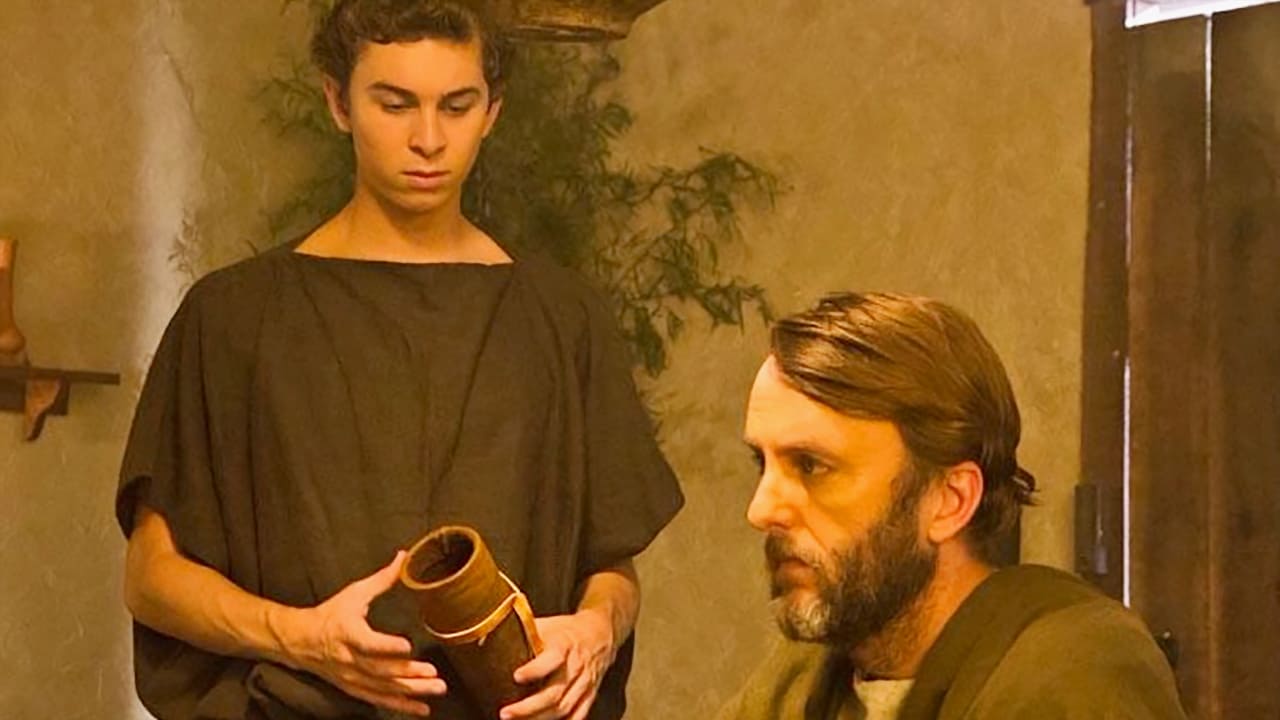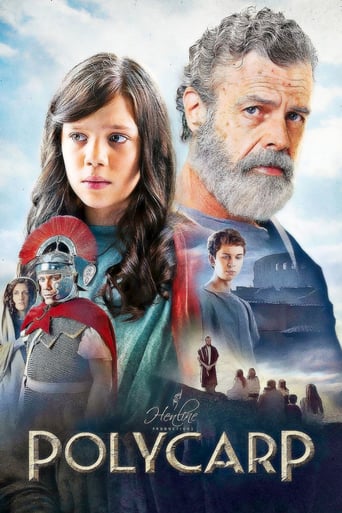



Very very predictable, including the post credit scene !!!
View MoreOne of the worst ways to make a cult movie is to set out to make a cult movie.
View MoreThe story, direction, characters, and writing/dialogue is akin to taking a tranquilizer shot to the neck, but everything else was so well done.
View More.Like the great film, it's made with a great deal of visible affection both in front of and behind the camera.
View MoreTedious film. No decent sense of character anywhere, overcome by over-piety of the production team. As someone else's review mentions, the ignoring of much history is abundant; and the approach is also historically extremely shaky in many areas concerning the nature of the apostolic church, with a clear didactic purpose in mind. For example, the collection of Polycarp's relics is the first time this happens in recorded history, yet this film doesn't want to tip a nod to branches of Christianity which venerate relics and simply does not mention this at all - indeed the shying away from anything after his death (no relics, no miracles) seems to be emphasising a rejection of the doctrine of the communion and intercession of saints. All the portrayal of Polycarp's own ministry is done as if he is a modern protestant evangelical preacher, akin to a pious Baptist perhaps, and the Eucharist has no sacramental properties in the film; there is no formal liturgy involved, despite contemporary writings attesting to a liturgy something like modern Orthodox/Catholic liturgy and a sacramental theology not far different. Polycarp was a major bishop in a hierarchy that was established in the generation before with remarkable detail (cf. letters of St Ignatius, St. Clement and Polycarp himself), yet the church is presented as informal and a matter for local piety only. It seems the creators of the film, having chosen their subject, were just too unwilling to accept its reality. So in summary:Boring if you are looking for some dramaProbably loaded/misleading if you are looking for theology/ecclesiology
View Morelike many other religious films, it could be easy criticized. for the Christian public , it is not the most inspired adaptation of the life of Saint Ierarch Polycarp because he is presented only as one from the first martyrs of Church. but it is obvious to be only a sketch. not bad because the young Anna is the inspired character for present the work, the faith, the words of a great saint from the East. at large view, it is a good work. relevant parts from biography are presented. the atmosphere, in many scenes against the clichés, is represented in right manner, the cast does a decent job. as each sketch, it suggest more than present. and that fact, the air of adaptations without great ambitions, the feeling - the target is precise - the Christians for who the life of Saint Polycarp is well known, the film representing a remind's support are pieces who transforms the film in interesting project.
View MoreIf you are looking for stunning visual effects and dramatic action sequences, this may not be the film for you. However, if you, like me, are looking for moving, challenging Christian films with a strong message and deep, engaging characters, you couldn't find better. The CGI is imperfect, as may be expected considering the budget they had to work with, but does come across as cheesy or phony looking-- just a little fuzzy. The acting is excellent and the script could not be better. The characters are engaging and the set is fantastic. I only hope the Henlines make more films soon because they are masters of historical fiction.
View MoreI think it was a well done story from the perspective of Anna. However, the writers went out of their way to ignore the fact that Ploycarp was a bishop. Like it or not, he was a prominent figure of authority in the early Christian community. The writers took extraordinary efforts to ignore this reality. Instead Polycarp was depicted as some generic martyr when he was an institutional standard bearer, a bishop of the Church. How sad. This movie would have been enriched by telling the full story, not deliberately leaving it out. Polycarp was first a bishop, and only later a martyr. The first half was ignored. How disappointing. The writers and directors should read the texts and histories, especially the Roman martyrology!
View More